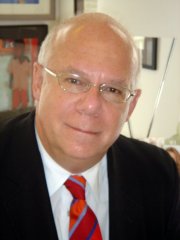Starting and resulting testosterone levels after androgen supplementation determine in all ages in vitro fertilization (IVF) pregnancy rates in women with diminished ovarian reserve (DOR)
Lecture Type: Research in Brief
Context
Dr. Gleicher discusses a recent publication in Journal of Assisted Reproduction and Genetics that suggests testosterone levels after androgen (DHEA) supplementation as predictor of IVF pregnancy rates. J Assist Reprod Genet 2013;30(1):49-62.
Abstract
PURPOSE:
To investigate whether androgen conversion rates after supplementation with dehydroepiandrosterone (DHEA) differ, and whether differences between patients with diminished ovarian reserve (DOR) are predictive of pregnancy chances in association with in vitro fertilization (IVF).
METHODS:
In a prospective cohort study we investigated 213 women with DOR, stratified for age (? 38 or >38 years) and ovarian FMR1 genotypes/sub-genotypes. All women were for at least 6 weeks supplemented with 75 mg of DHEA daily prior to IVF, between initial presentation and start of 1st IVF cycles. Levels of DHEA, DHEA-sulfate (DHEAS), total T (TT) and free T (FT) at baseline ((BL)) and IVF cycle start ((CS)) were then compared between conception and non-conception cycles.
RESULTS:
Mean age for the study population was 41.5 ± 4.4 years. Forty-seven IVF cycles (22.1 %) resulted in clinical pregnancy. Benefits of DHEA on pregnancy rates were statistically associated with efficiency of androgen conversion from DHEA to T and amplitude of T gain. Younger women converted significantly more efficiently than older females, and selected FMR1 genotypes/sub-genotypes converted better than others. FSH/androgen and AMH/androgen ratios represent promising new predictors of IVF pregnancy chances in women with DOR.
CONCLUSIONS:
DOR at all ages appears to represent an androgen-deficient state, benefitting from androgen supplementation. Efficacy of androgen supplementation with DHEA, however, varies depending on female age and FMR1 genotype/sub-genotype. Further clarification of FMR1 effects should lead to better individualization of androgen supplementation, whether via DHEA or other androgenic compounds.
VIDEO: Starting and resulting testosterone levels after androgen supplementation determine in all ages in vitro fertilization (IVF) pregnancy rates in women with diminished ovarian reserve (DOR)
Recorded on: Wednesday, January 30, 2013

